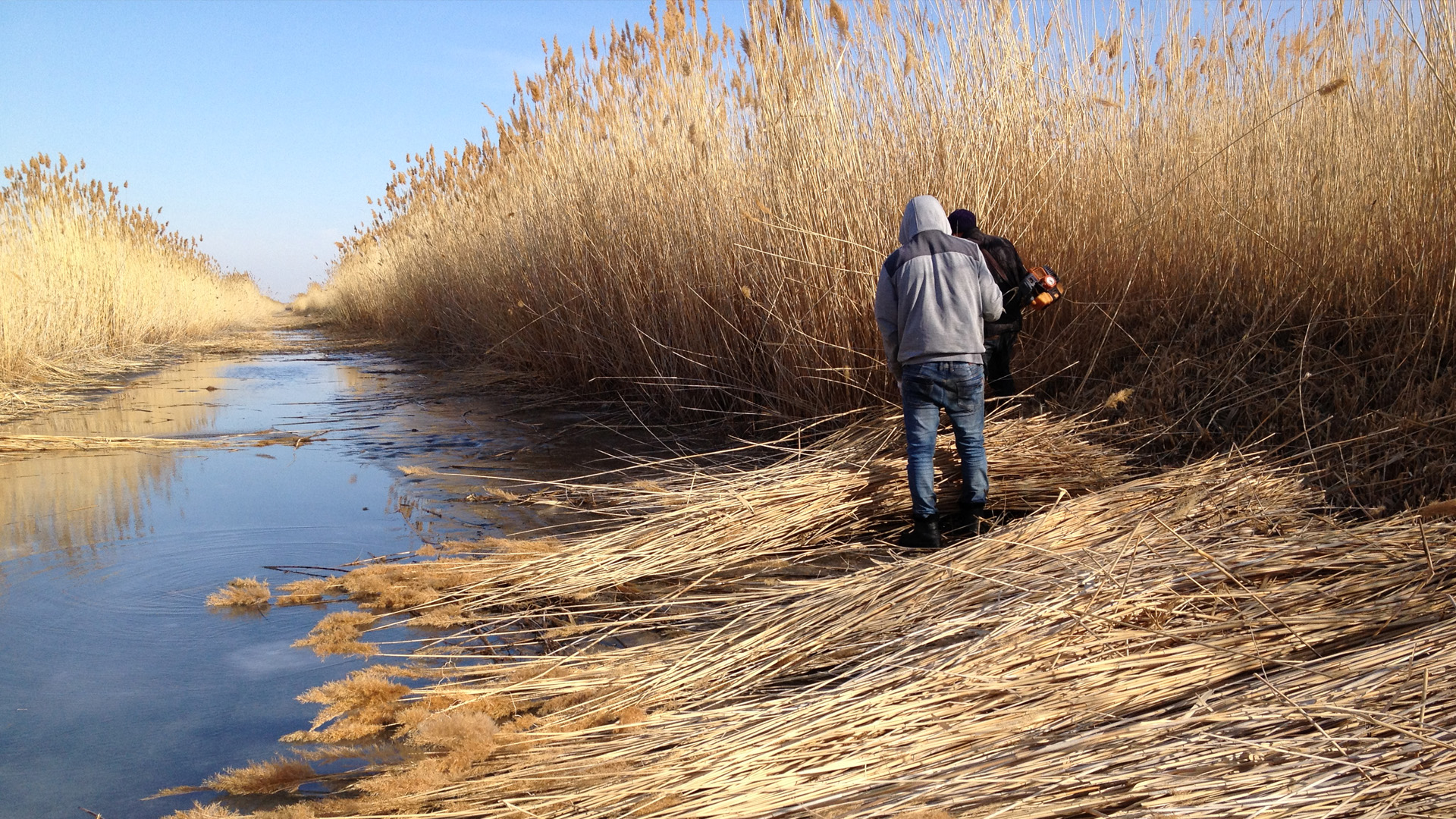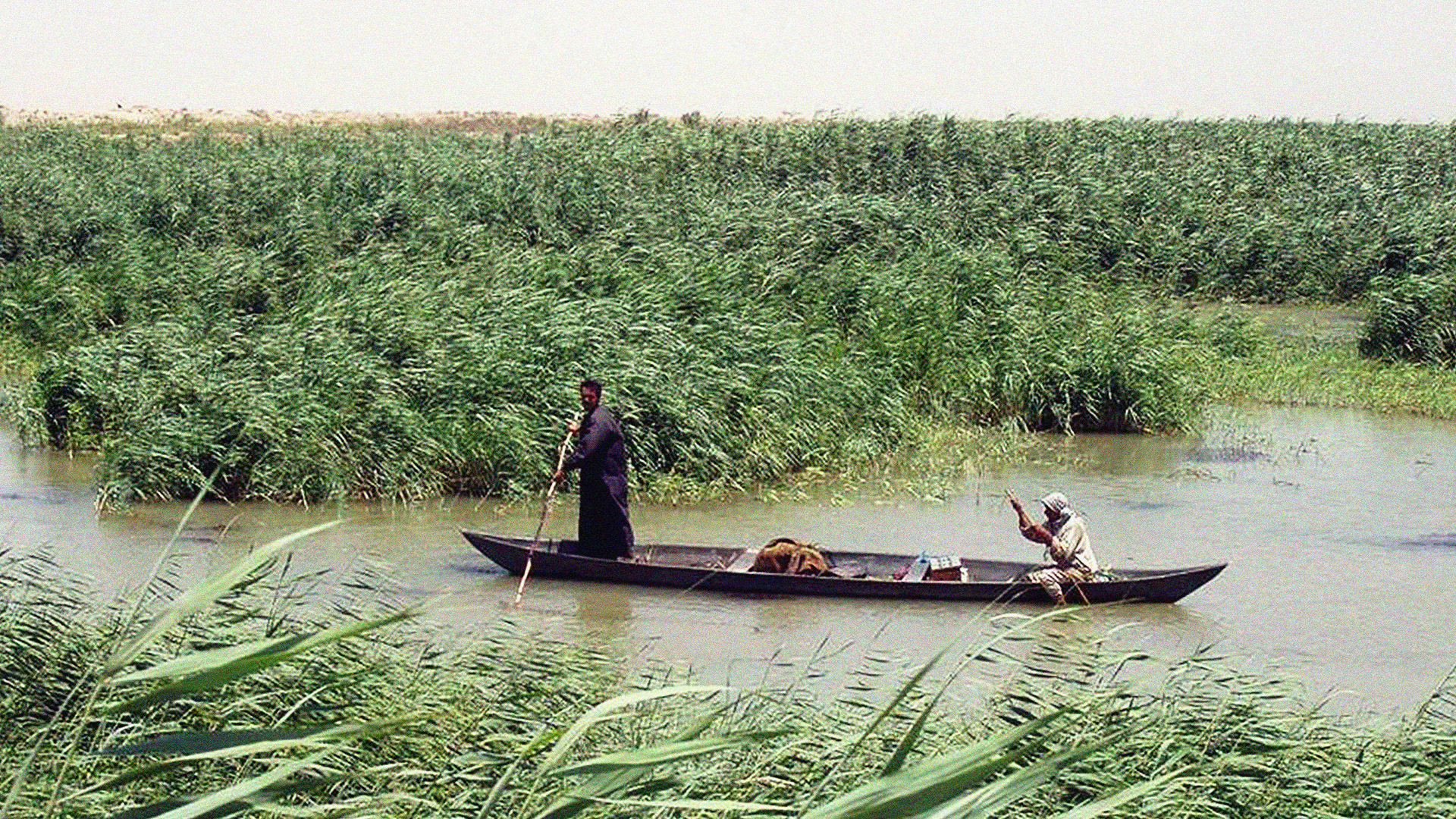
The following descriptions of territories of life across West and Central Asia were collected from the ICCA Consortium membership in the region. Cases have been grouped based on the ecosystems where these ICCAs exist.

Riparian communities along the Syr Darya in Kazakhstan. Photo: Aibek Samakov
13
Riparian communities along the Syr Darya in Kazakhstan
The Syr Darya River Delta commons: territories of life of local Kazakh tribes
Source: Aibek Samakov, ICCA Honorary Member
Location: Qazaly district, Qyzylorda province, Kazakhstan
Community: Kazakh tribes of the Junior Juz
Practice(s): Herding, reed mowing, shifting agriculture
The Syr Darya Delta has been an area of rapid socialecological change. Environmental degradation caused by the desiccation of the Aral Sea coupled with the collapse of the Soviet Union and the transition to a market economy have been the main drivers of change. Historically, the Kazakh tribes in the Syr Darya delta migrated with their herds between two areas, known as syr (meaning the riparian zone of the Syr Darya River) and qyr (meaning the Qaraqum semi-desert north of Syr Darya). The semi-desert south of the river, known as Qyzylqum (lit. Red sands), was occupied by Turkmen nomadic tribes. The Kazakh tribes spend winters in the riparian pastures and summers in the cooler Qaraqums. Similar to other areas of the USSR, after the establishment of Soviet authority, herding was managed by collective farms known as kolkhozes and sovkhozes. The Syr Darya Delta region was assigned to grow rice, although the naturally low soil fertility and the area’s proneness to soil salinization were not favourable conditions for large-scale irrigated agriculture.

After the collapse of the Soviet Union, the state farms dissolved and market-oriented policies promoted the privatisation of lands. However, the local communities in the Syr Darya Delta de facto revived their traditional common pool resource management system. Thus, the land which belonged to the state farm started again to be used by local people as common property. The strong community ties within the communities and informal rules allow the successful functioning of the commons. The common pool resources in the delta region include pastures, reed beds where locals harvest reed as animal feed and construction material, and land for shifting agriculture (mostly for growing melons, watermelons, and other fruits and vegetables).
The local communities have strong social ties as well as strong historical connections to their territories of life. These areas are very close to being Defined ICCAs, however the lack of formal recognition of communities’ rights to their commons leads to our classifying them as disrupted.

Marsh Arabs poling a traditional mashoof in the marshes of southern Iraq. Photo: Hassan Janali /Wikipedia
14
Marsh Arabs on the Tigris-Euphrates in Iraq and Iran
Desiccation of Marshes leads to loss of livelihoods, traditional knowledge, and values
Source: Aibek Samakov, ICCA Honorary Member
Location: Southern Iraq
Community: Marsh Arabs
Practice(s): Fishing, reed mowing, handicrafts
The annual flood pulses of the Tigris and Euphrates, two mighty rivers of West Asia, created the famous Mesopotamian Marshes, which used to be one of the largest wetlands in the region. These marshes covered 15,000-20,000 square kilometres in the 1970s and were home to about half a million people (UNEP 2001). The marsh-dependent livelihoods of Marsh Arabs included herding water buffalo, small-scale fishing, reed mowing, handicrafts, and trade (Young 2009, Ochsenschlager 2004, Thesiger 2007). Both the Iran-Iraq war and government policies directed against the local communities devastated the Marsh ecosystems, with up to 90% of them being drained and local communities displaced (UNEP 2001). The restoration efforts in the 2000s managed to rehydrate about 58% of marshes in Iraq (Al-Handel and Hu 2015), but droughts, desertification, soil and water salinization, water diversions projects, dam construction upstream and climate change all are posing great threats to local ecosystems and livelihoods
(Fawzi et al. 2016). Desiccation of the marshes is resulting in a loss of traditional marsh-related knowledge and skills, especially among women, as local communities have fewer opportunities to engage in their traditional livelihoods. Those communities that have access to sufficiently hydrated marshes, such as in the Chibayish district and the Iraq Marshlands National Park, are observed to be able to retain and successfully pass on their traditional knowledge to the younger generations (Fawzi et al. 2016).
The Marshlands of southern Iraq and Iran are areas where traces of some of the earliest human civilizations are found. Local communities have accumulated a body of traditional ecological knowledge that has allowed them to thrive in this environment for centuries. However, armed conflicts coupled with policies detrimental to the local ecosystem have disrupted the strong ties that once existed between the local communities and their territories of life and have severed their governance institutions and practices.